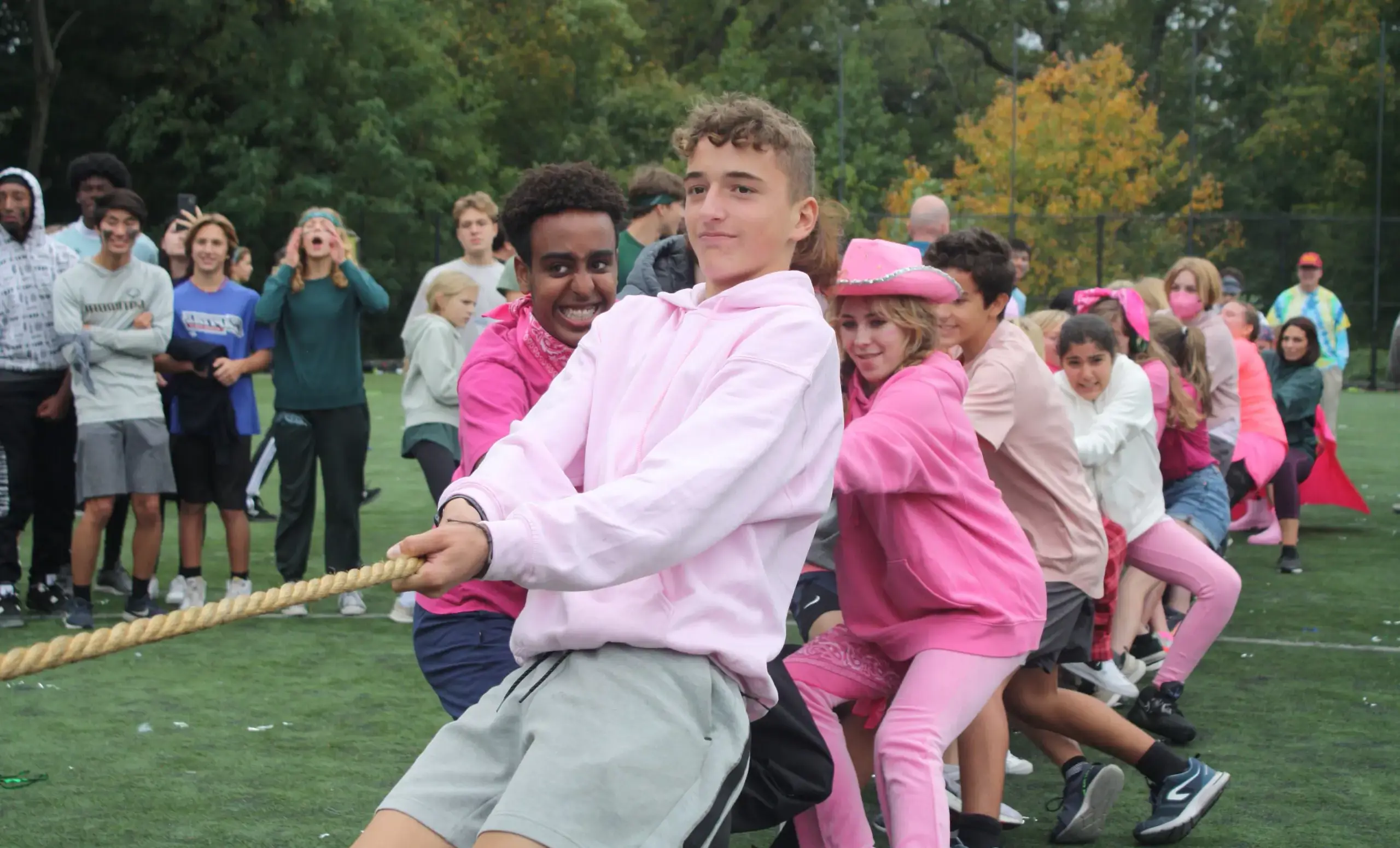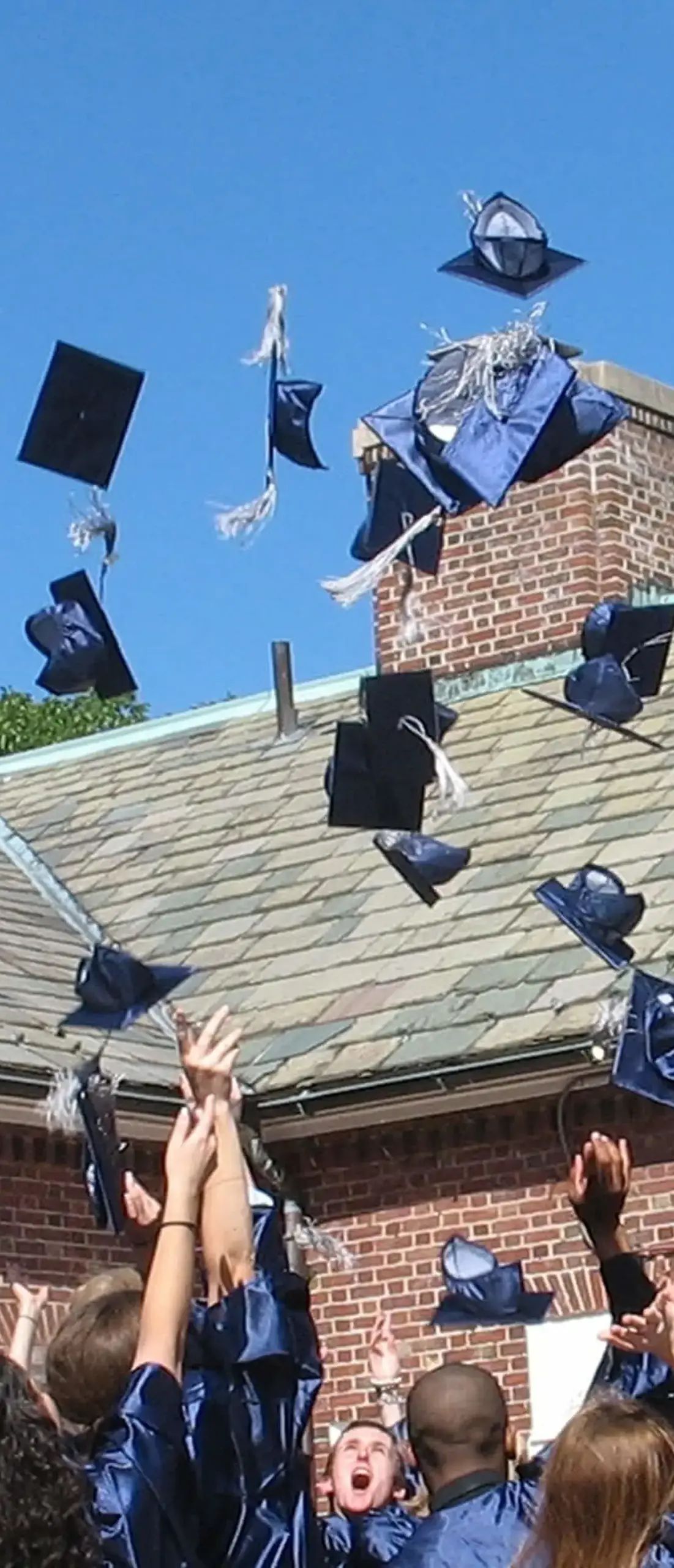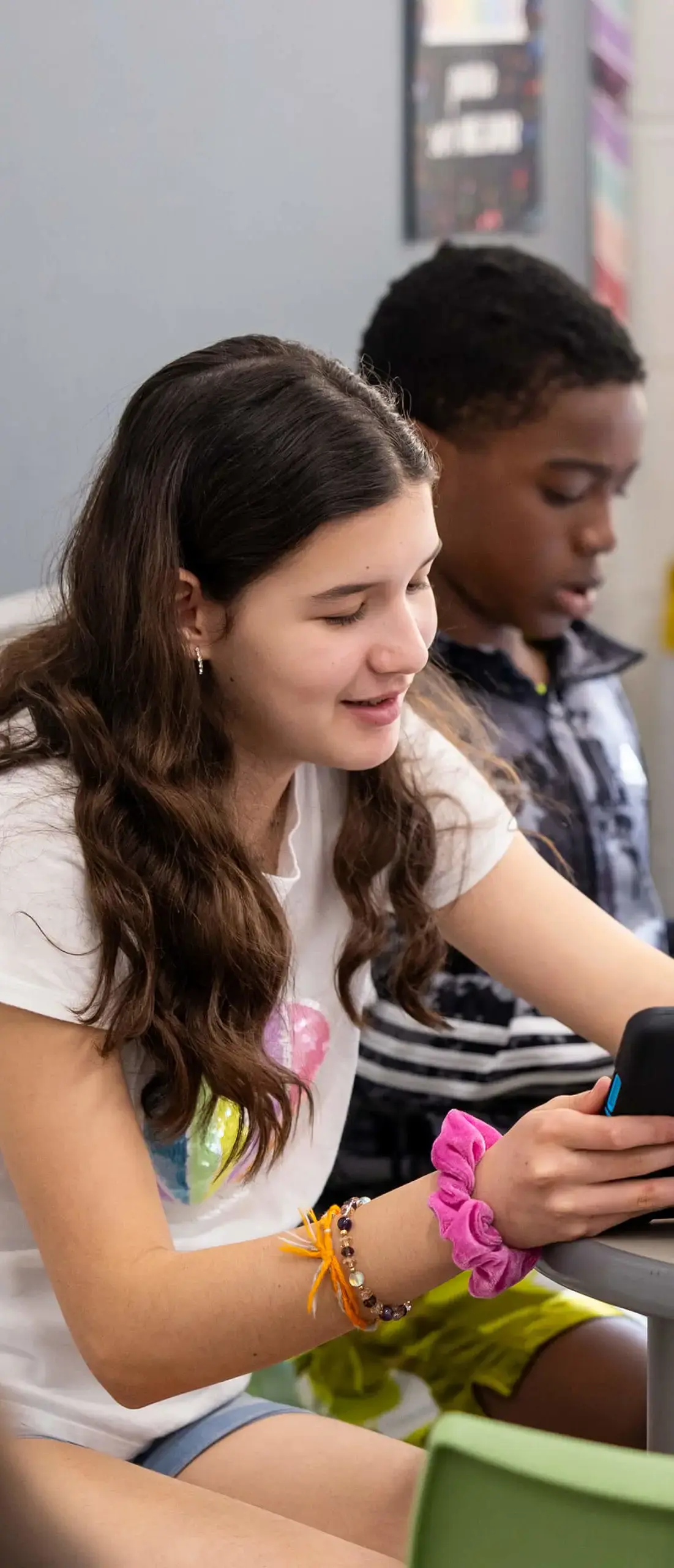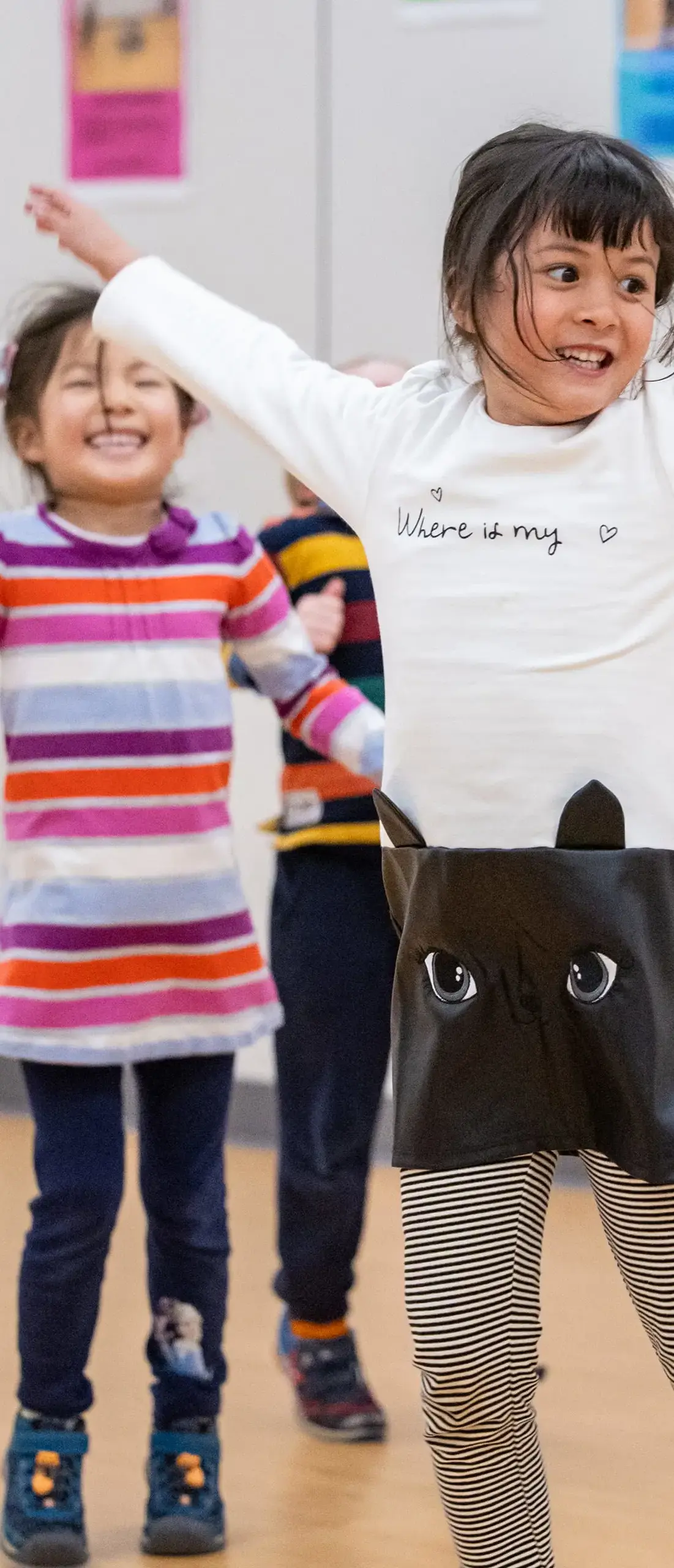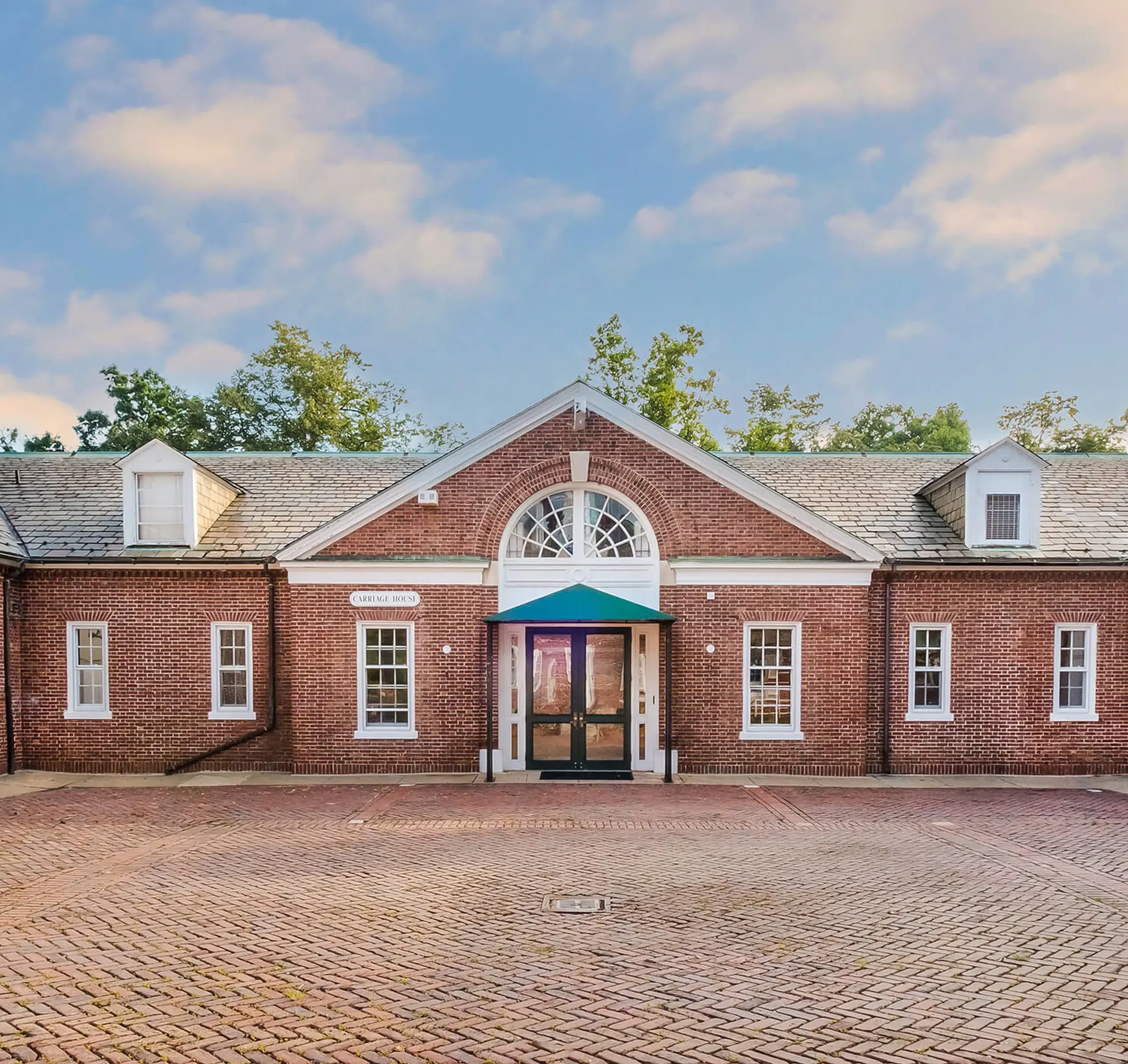WIS Seniors Document Lives of Local Senior Citizens
Over the past year, WIS seniors Maddy, Celeste, and Sofia have embarked on two separate, but similar projects: interviewing local senior citizens to learn more about their personal histories.
Celeste and Sofia started their podcast project last year through winning the Community, Equity, and Justice Award (CEJA), which supports social justice and equity initiatives at WIS. Maddy was part of Historic Chevy Chase DC’s inaugural oral history project “Eighty, Meet 18: Seniors Talk, Youth Listen, and a Valuable Collection is Born,” the intent of which “is to capture the life stories and memories of the eldest among us by high school students, whose adult lives are still ahead of them.” Maddy introduced Celeste and Sofia to the program director, who invited them to share their podcast project on the “Eighty, Meet 18” website.
For “Eighty, Meet 18,” Class of 2025 students from different schools were paired with local senior citizens living in senior residential facilities in Chevy Chase. The students were tasked with interviewing these seniors about their life stories and then transcribing those interviews for publication on the HCCDC website.
Maddy met Burton Gerber, a former CIA operative who grew up in the Midwest. She really enjoyed their conversation, saying, “He was awesome. He was a CIA station master in multiple Soviet Bloc countries during the Cold War, which is just a crazy job. He told me he couldn’t talk specifics about his job at the CIA, so we sort of wove the interview through this tale of: How did you get to the CIA? What was it like being an outsider from the Midwest in that CIA culture? He also talked about his wife and how she may have felt being on the civilian side of that equation, and [he shared] what it was like going home at the end of the day in Moscow during the Cold War. I had a great time talking to him. He actually passed away a couple of months ago. I'm just so glad I got that chance to talk with him in that closing window.”
Maddy also had the opportunity to present at the DC History Conference at the beginning of April. Along with other “Eighty, Meet 18” interviewers, they participated in a poster session, where they visually shared their research with attendees in small groups. She explained, “There were maybe 30 different projects by local researchers and local organizations, and then there were people from all over the DMV area who walked and heard about the different projects. It was an awesome experience to share what we did, but also it was really nice to get to talk to other people about it and see the research projects they had done.”
Sofia explained that she and Celeste came up with their podcast project, “Senior Stories with Celeste and Sofia,” because “we both had cool experiences listening to other people's stories, and this was a way to continue that passion and—selfishly—to keep experiencing that and still have a tangible impact.” Celeste added: “It's really about giving everyone the same chance to share their stories. Even if we don’t end up using a story on the podcast, every conversation is always super interesting, especially because you can always gain something from hearing about somebody's experiences. Everyone lives a different life, so it does give you a different perspective.”
All three young women were grateful for their experiences talking to older adults. Celeste reflected, “For me, it’s been really moving to talk to women about their experiences way back when. I talked to one woman who wanted to be an artist—specifically a sculptor—and she had a very misogynistic program director; then, her husband kind of forced her into settling down and having a family too early. I really appreciated her honesty about this situation, especially because she loves her family and whatnot, but I could really tell that she regretted having children so early. I wanted to make sure that she felt heard about that. She asked me to promise that I would pursue what I wanted, and it made me appreciate how lucky I am to be in a different situation.”
Sofia added, “One really interesting conversation I had was with my neighbor who went to Woodstock when he was about my age. Hearing about his and his wife’s experiences—they both were super involved in the youth protests of the 1960s and 1970s—was really interesting. Like today, it was also a time when it felt like a big change was coming, and it felt so relevant. Even though we’re teenagers and sometimes feel kind of powerless, it's really cool to be able to see history through the eyes of other adults. It was a reminder that history repeats itself. Even though sometimes we look at that as something negative, I think, at times like this, it also is sort of a positive thing to think about. With every struggle comes a movement against it, and that movement is often started by youth, but it also can continue throughout a person's life. That's been really cool to get to see.”
Maddy’s takeaway from speaking with Burton Gerber? “He talked about this feeling of being an outsider the whole time in his CIA, because he was from the Midwest, not the East Coast. I even asked him, ‘Did you ever stop feeling like an outsider?’ He said, ‘No, I always was,’ but that wasn’t a negative for him. I think there's something valuable in that for anyone reaching adulthood, because we're all outsiders somewhere, and that is something we all have in common.”
Celeste added, “I think that's really the main thing that I got from this project: the realization that you can connect with anyone. Sofia and I have met a bunch of people, and without this project there is no other way we would've connected with them. At times, we had very vulnerable conversations and we learned a lot about these people, and by the end, we ended up having a lot of compassion for them. It's just amazing how you can have this interaction that you might expect needs a lot more work, but it really doesn't; it's just about maintaining a sense of empathy and kindness, and realizing what a good use of time it is.”
Sofia continued, “I realized how much we have in common with everyone. I wouldn't have thought that I would relate to or agree with so much of what an 80 year old says. But, at the end of the day, some of these people's views surprised me. I wouldn't have expected that kind of open-mindedness in some cases, so it helped to undo some prejudices that we have unknowingly. If I hadn't talked with my neighbors, I wouldn't have known all these things about them, but they're so interesting. Spontaneity can be really cool and it’s made me more open-minded [when it comes] to talking with random people.”

